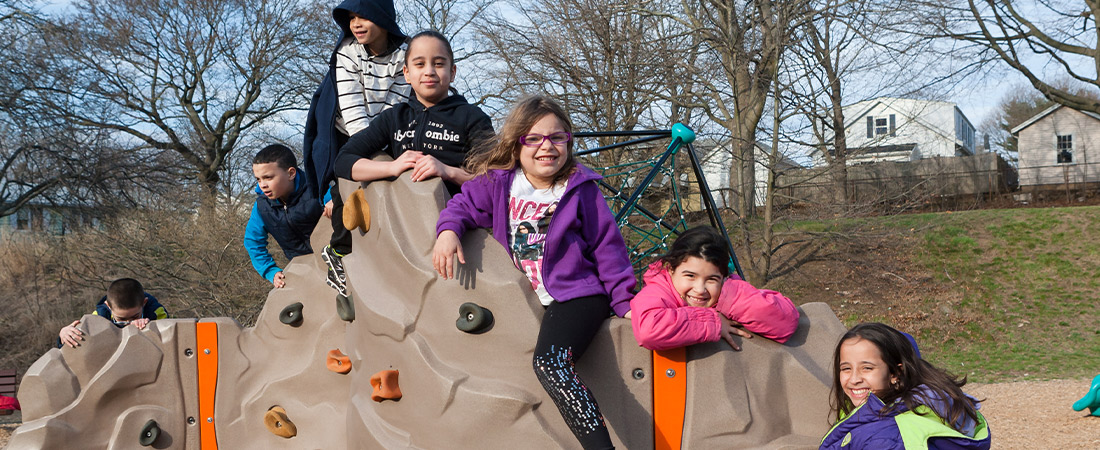
Powerful learning experiences often happen outside of the school day. EDC builds, implements, and evaluates out-of-school and nonformal programs that deliver core civic, educational, and life skills to young people in diverse environments.
In the United States, EDC’s support for out-of-school time (OST) and nonformal learning leverages children’s and youth’s strengths to help them succeed at school, engage in their communities, and lead productive and healthy lives. We design, evaluate, and provide technical assistance on high-quality OST programs that prepare young people for success—whether pursuing social and academic enrichment after school or leaving school and starting a first job.
Internationally, EDC develops and implements programs that support educational and economic opportunities for out-of-school youth. Working within the unique context of each country, we partner with governments, industry, and nongovernmental organizations to provide young people with the skills, knowledge, and opportunities they need to be market-ready and contribute to society.
Related Content
EDC Talks: How Do You Develop High-Quality Out-of-School-Time Programs?
Children can learn a lot from programs that take place outside of school hours.
4 Ways to Strengthen Youth Programs in Conflict and Crisis Areas
Building youth programs in unstable regions can be challenging. Here are four ideas for practitioners.
A Success Story in Senegal
Meet Adama Diedhiou, a participant in EDC’s workforce development program in Senegal.
A Second Chance at School in Mali
In Mali, accelerated education is helping thousands of children get back to school.
3 Ways to Stop the Summer Slide
Want to help kids keep learning this summer? Here are some tips for parents and caregivers.
New Entrepreneurs Launched in Rwanda
EDC’s workforce development efforts in Rwanda are helping young people build the skills for work.
Projects
Resources
Here are a few of our resources on out-of-school learning. To see more, visit our Resources section.
This executive summary presents an overview of results from EDC’s evaluation study of Cha-Ching Money Adventures.
Technology has proven to be one of the missing links in order to guarantee educational and workforce improvement in developing countries.
EDC conducted a research study in the Democratic Republic of Congo to test the effects of teacher knowledge and practice on student learning.
This report presents findings from the evaluation of the 21st CCLC Program grantees who were active during 2018–2019.
This report builds on the DeliverEd research in Ghana, Pakistan, Jordan, Sierra Leone, and Tanzania that sheds light on the effectiveness of delivery approaches for improving policy implementation. It proposes a framework for policymakers to consider when determining whether and how to launch, learn from, and scale and sustain delivery approaches.
This study evaluated the work of the Akazi Kanoze (AK) Youth Livelihoods Project in Rwanda to support youth entrepreneurs. The report presents findings on the effectiveness of AK’s Entrepreneurshi
This curriculum guide is designed as a tool to help teachers in autism inclusion schools facilitate an after-school or lunchtime “Maker Club.”
South Sudan Interactive Radio Instruction (SSIRI), funded by the United States Agency for International Development and working with the Ministry of Education, uses radio-based learning and other technologies to deliver high-quality education programs to children, youth, and adults in South Sudan.
The Learning Generation Report presents an action plan to deliver and finance an expansion of educational opportunity for more than 260 million children and youth who are not in school today.
This 2-page document summarizes the impact of IDEJEN, the Haitian Out-of-School Youth Livelihood Initiative, which addresses the education and livelihood needs of youth ages 15-24 with little or no primary education.

